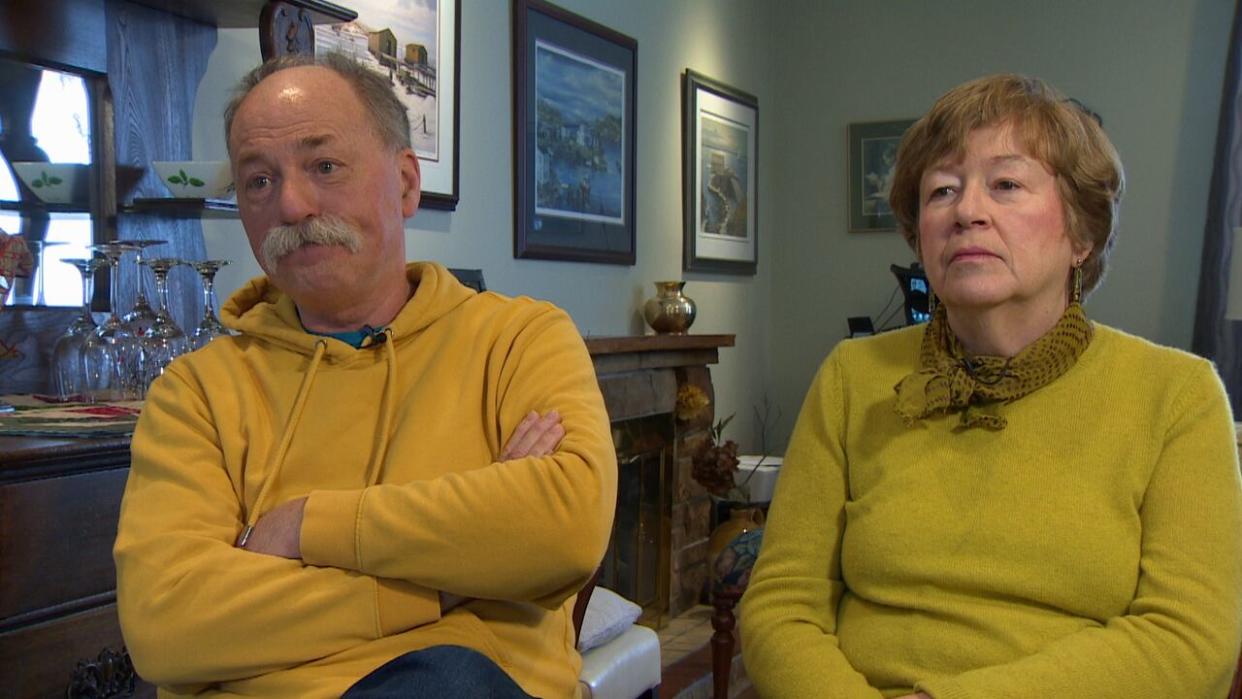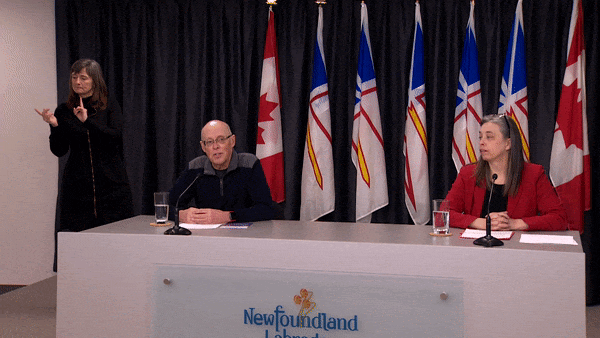4 years after N.L.'s first case of COVID-19, this couple recalls being part of an early outbreak


Laurie McLean, left, and Cheryl Brown-McLean were part of a notorious cluster of COVID-19 cases at the very beginning of the pandemic in Newfoundland and Labrador. Four years later, they're looking back at what the experience was like. (Mark Quinn/CBC)
As Newfoundland and Labrador marks the fourth anniversary of its first announced presumptive case of coronavirus, two people at the heart of an early outbreak are reflecting on the pandemic's early days.
Laurie McLean and Cheryl Brown-McLean remember the shift: from total normalcy to the complete unknown.
Things changed after they went to a wake at Caul's Funeral Home in St. John's in March 2020.
"We weren't concerned at all, really, when we chose to go to Caul's. We went to the wake of a brother of a neighbour, so all the neighbours were going," Cheryl told CBC News on Thursday.
"There had been some warnings about COVID, you know, potentially coming here. And the warnings were I believe at the time, 'Be careful of anybody who's coughing, sneezing. Stay out of their range,' so to speak."
Laurie fell ill a few days later, and spent 19 days in hospital with COVID-19. The McLeans became part of what became known as Caul's cluster, which represented about 170 connected cases and was one of the first reported clusters of coronavirus in Canada.
"It was like I was hit by a truck, right? Like I could feel this sickness almost welling inside of me," Laurie said. "I thought I was dying.… I literally couldn't breathe."

Newfoundland and Labrador reported its first case of COVID-19 on March 14, 2020, and implemented a public health emergency four days later. At a March 17 briefing at Confederation Building, then health minister John Haggie and Janice Fitzgerald, the chief medical officer of health, demonstrated the principle of physical distancing. (CBC)
Newfoundland and Labrador reported its first case of COVID-19 on March 14, 2020. While in hospital, the McLeans watched the world shut down around them.
Schools and daycare facilities across the province closed two days later, and a public health emergency came into effect on March 18. The emergency status was lifted two years later in March 2022.
The first death as a result of COVID-19 was reported on March 30. Four years later, about 400 people in Newfoundland and Labrador have died due to the virus, according to statistics reported by the province.
Laurie McLean said he has select memories of battling the virus, like being put under to have a ventilator installed to help him breathe — and the strange, drug-induced dreams that followed.
"There was humans just being lined up and the aliens were just looking at us. And they just came in, they shook their heads and they threw me out. So you know, the aliens rejected me," he said with a laugh.
"I think now, that [was] my body winning the battle."
Cheryl said it was difficult to be away from Laurie for so long at the start of the pandemic and knows how it must have challenged other families. She credits the medical staff at the Health Sciences Centre for caring for the both of them and giving her peace of mind.
Four years and a second COVID-19 diagnosis later, Laurie said the events of the 2020s are still hard to believe at times.
But these days, the couple say, life is pretty much back to normal.
"I don't dwell on it at all," Cheryl said. "I don't think about it from day to day. I certainly don't worry about it."
Download our free CBC News app to sign up for push alerts for CBC Newfoundland and Labrador. Click here to visit our landing page.


